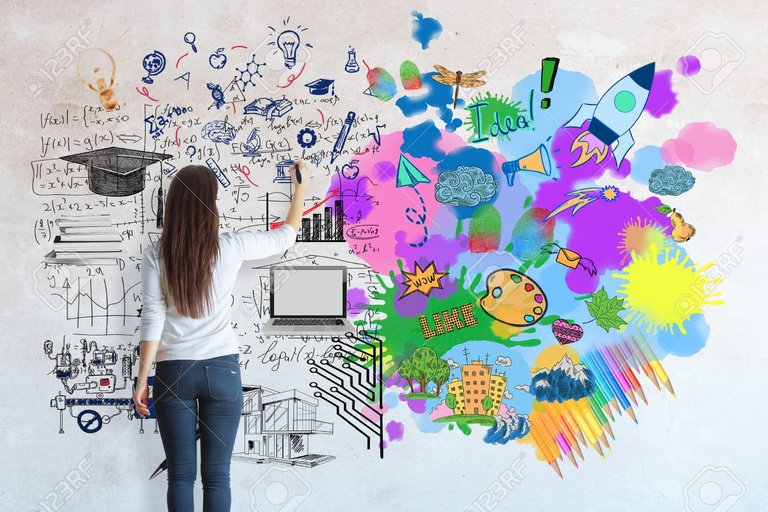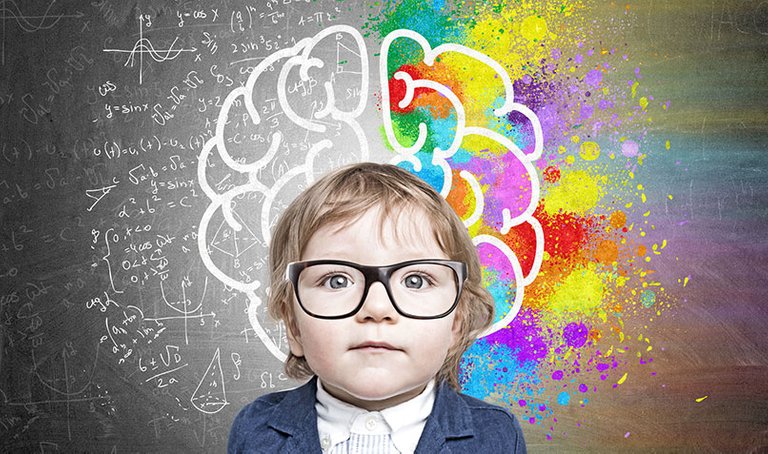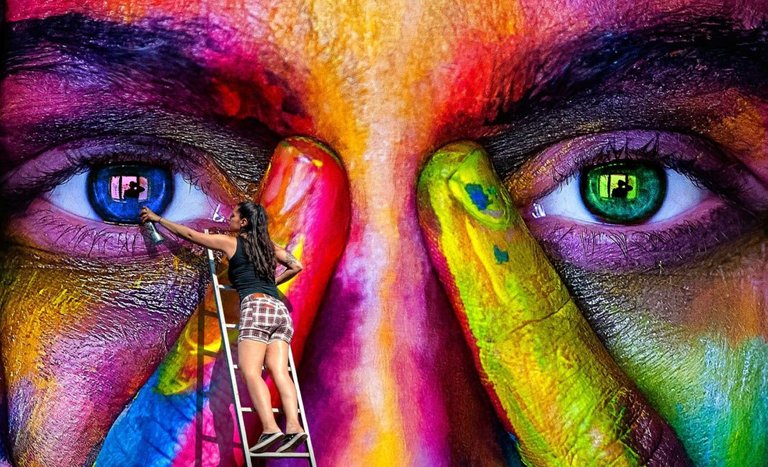How Creative People Think and Act?

Does creativity manifest itself in making flowers out of paper napkins or painting a particularly beautiful picture? Yes, of course how you take it. But being creative also means thinking, feeling, and acting differently than the mainstream. Going against it, having your own opinion - ticking differently. Being creative is “somehow different”.
It is also creative to do and invent things that no one else has come up with. Or didn't dare. It can be creative to do exactly the opposite of what is expected of you and to bring out the unexpected. But being creative also means experimenting, failing, and making the best of it. Without creative minds, we would have to forego all of the conveniences of the technological and digital world today.
The crucial difference
It can be scientifically proven that a creative person differs from others: Neurological research has shown that creative minds really do and act differently from those who are considered average or normal consumers. Synapses in the brain are connected in a unique way. Sometimes it even seems that creative individuals live in their very own world. Some will have gritted their teeth when trying to get there. And any effort to change them is not nearly as effective as a small attempt to understand them and their minds. For this, you should look at the world from a creative point of view.
What is it about, the creative inventors, founders, loners? What makes people tick who don't want to fit in with the mainstream and who design things or ideas that are celebrated as “innovative” or that are stamped out as complete idiocy?
What is creativity and how does it impact people's lives?
Being creative head is driven by persistent and intense curiosity, works non-stop, and without ceasing. There is no pause button. This can sometimes be incredibly exhausting, especially for outsiders, but it also offers a constant source of crazy ideas, fun, and good conversations.

There are two questions that concern almost every creative person more than everyone else:
They question what others simply take at face value. While this questioning is rather uncomfortable for many, it is precisely the ability for creative people that lets them redefine motifs and things and opens up to them what is possible.
Even if others cannot do anything with their talent, creative minds remain true to themselves, defend their principles and would prefer authenticity to general popularity. Staying authentic without compromise - that's how you define your success. Even if that means sometimes being marginalized or misunderstood.
Creative minds usually have trouble keeping up. If a project is delayed indefinitely or if new ideas have emerged in the meantime that attract attention, it is difficult to set a focus.
Creativity has a rhythm. There are periods of euphoria as well as periods of total discouragement. Creative phases of creation alternate with those in which nothing happens. All of this is necessary, each individual chapter is dependent on the others and cannot be skipped.
Creative personalities have to constantly look for new sources of inspiration and motivation, as the old ones wear out constantly. Temporary seclusion serves this purpose in many ways.
The environment is a key factor in allowing creativity to flow. Whether in the forest, in the lecture hall, or in a café - it only has to be possible for the creative to create and accept their own limits.
Creativity is one of the deepest human expressions of communication. It is impossible to give what you do not have, and you can only go with others as far as you have already gone. In order to be able to communicate intensively and in-depth, a creative person must first go deep into himself - what he cannot find there, he cannot convey to the outside.

It is a fact that nothing can move a human heart more than a well-told story. Very creative people, especially artists, are aware of this and weave everything they do into stories. It takes them a long time to explain something. Because it's not about explaining itself, but about imparting experience.
Many creative minds feel as if they have two lives: the one in which they actually live and the second, unlived in themselves. There is a constant struggle between these two. No matter how successful the person may be with their creative work - the fear that the two worlds do not understand each other remains everywhere.
The creative work is simply an expression of the person who created it. Creative minds are often unable to hand in or separate their works because they feel they are giving away a piece of themselves. Every criticism of what is created is therefore usually taken very personally - as confirmation or condemnation of their self-worth.
Even the most self-confident creative person will often ask himself if he is good enough. The constant comparison of one's own work with that of others is every day. Also, that own works are usually not in the light, but rather in the sidelines. Self-confidence is hard work.
Science still doesn't agree on how and by what creativity can be explained and why some people seem to have gotten a lot more out of it than others. But one thing is already clear: creative minds follow their instinct, intuition, and gut feeling. How this works can probably not be understood from the outside, you have to experience it yourself and firsthand.
Creative people are notorious procrastinators. They always have something much more important to do than the actual work. This naturally puts them under enormous pressure. Sometimes this happens unconsciously on purpose. Postponing work to the last minute enables many to learn to love and appreciate the challenge in the hectic pace. It is not uncommon for a so-called creativity boost to arise.



👋 Hi @juvyjabian, I was flipping through the blockchain and stumbled on your work! You've been upvoted by Sketchbook / a community for design and creativity. Looking forward to crossing paths again soon.
✅ Join the Sketchbook Community